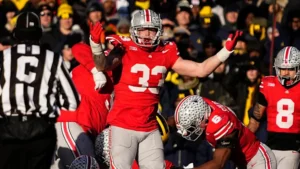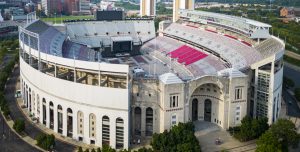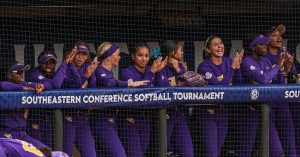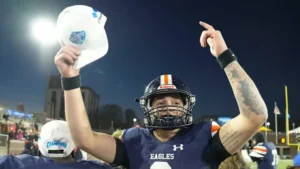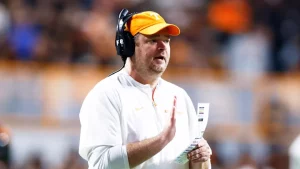
Lou Holtz and the 1988 National Championship with Notre Dame
The 1988 college football season remains one of the most iconic in the history of Notre Dame Football, largely due to the remarkable leadership of head coach Lou Holtz and the unforgettable performance of his team. Holtz, a coach known for his fiery passion, meticulous preparation, and ability to get the most out of his players, led the Fighting Irish to the national championship in a season that defined his coaching legacy and re-established Notre Dame as a powerhouse in college football.
Lou Holtz was hired as the head coach of Notre Dame in 1986 after a highly successful tenure at the University of Arkansas. Holtz inherited a program that had seen its fair share of turmoil and mediocrity during the 1970s and early 1980s, but one that was still revered for its history and tradition. The Fighting Irish had not won a national title since 1980 and had suffered under inconsistent coaching, so Holtz’s challenge was significant.
Despite this, Holtz brought a renewed sense of discipline, structure, and confidence to the program. He quickly became known for his motivational tactics, his attention to detail, and his ability to mold players not only into better athletes but better men. Holtz also understood the immense pressure of coaching at Notre Dame, a school with a proud football tradition that demanded excellence. His first two seasons were a mixture of ups and downs, but by 1988, Holtz had established a foundation strong enough for success.
The 1988 Notre Dame Fighting Irish were a blend of seasoned veterans and exciting young talent. Holtz had inherited a team with several key players who would be instrumental in the success of the 1988 campaign, including quarterback Tony Rice, a dual-threat athlete who had shown glimpses of his potential in previous seasons. The team had a strong defense, led by players like linebacker Wes Pritchett and defensive backs like Todd Lyght, who would go on to have a standout NFL career. The offensive line was solid, and Holtz had an array of talented skill players to rely on, including running back Ricky Watters, who would later star in the NFL.
Notre Dame’s schedule for 1988 was daunting. The Irish were slated to face multiple ranked teams throughout the season, including a challenging set of opponents in the latter half of the season. This season would serve as a true test of whether Holtz’s discipline and strategic acumen could lead Notre Dame to its first national championship in nearly a decade.
The 1988 season saw the Irish face multiple top-ranked teams, and each game was pivotal in determining the championship hopes of the team. Here are some of the key games that defined Notre Dame’s national championship run:
-
Notre Dame vs. Michigan (19-17 win):
The season opener against Michigan was a close contest. The Wolverines were led by coach Bo Schembechler and quarterback Michael Taylor, and they came into South Bend with high expectations. Notre Dame managed to win a hard-fought game, 19-17, in front of a raucous home crowd. This victory set the tone for the rest of the season, proving that Holtz’s team had the grit and resolve to survive close games against quality opponents. -
Notre Dame vs. Michigan State (21-19 win):
In a game that saw the Fighting Irish win a nail-biter, Lou Holtz’s squad narrowly defeated Michigan State. A win against a solid Big Ten opponent was crucial as it demonstrated the team’s ability to win on the road and in tough circumstances. The victory was made even sweeter with key plays from Tony Rice, Ricky Watters, and the defense, showcasing the team’s balance. -
Notre Dame vs. Miami (31-30 win):
One of the most memorable games in college football history occurred in South Bend when Notre Dame hosted the defending national champions, the Miami Hurricanes. Miami entered the game as the defending champions and had a star-studded roster, including future NFL stars such as Michael Irvin and Jerome Brown. Miami was riding a 36-game unbeaten streak, but Notre Dame’s defense and timely offensive plays, including a clutch performance by Tony Rice, led to a thrilling 31-30 victory. This game is often remembered as one of the most emotional and intense games in college football history, with the victory solidifying Notre Dame’s place as a legitimate national title contender. -
Notre Dame vs. USC (27-10 win):
The rivalry game against USC was another crucial battle. While the Trojans were a formidable opponent, the Irish cruised to a 27-10 victory behind an excellent performance by the defense and special teams. This victory helped cement Notre Dame’s place in the national championship picture. -
Notre Dame vs. Arkansas (49-19 win):
A dominant 49-19 win over Arkansas in the Sugar Bowl was a fitting end to an undefeated season. The Irish finished with a perfect 12-0 record and had been tested throughout the year. The Sugar Bowl victory showcased Notre Dame’s complete dominance and solidified their claim to the national title.
The Players: Key Contributors to the Championship
The 1988 Notre Dame Fighting Irish were not just a great team because of their coaching; they were also filled with exceptional talent at virtually every position. Here are a few of the key players who made significant contributions to the championship run:
-
Tony Rice (Quarterback): Rice was the heartbeat of the offense, a dynamic dual-threat quarterback who could both run and throw effectively. His leadership on the field was invaluable, and his ability to make plays in critical moments was a hallmark of the season. Rice’s leadership in the Miami game, when he orchestrated a late-game drive, was one of the defining moments of the season.
-
Ricky Watters (Running Back): Watters was an outstanding running back who could both run with power and catch passes out of the backfield. He was a constant threat and provided the team with much-needed balance on offense. Watters’ vision and speed helped open up the Irish’s offensive attack.
-
Wes Pritchett (Linebacker): A leader on the defensive side, Pritchett was a key contributor to Notre Dame’s defensive success. He was a strong tackler and an excellent leader on a defense that would be a significant part of Notre Dame’s success.
-
Todd Lyght (Cornerback): Lyght was one of the top defensive players in the country, earning All-American honors. His ability to shut down top receivers was critical, especially in key games like the Miami matchup, where he helped neutralize Miami’s high-powered passing attack.
After a perfect 12-0 regular season, Notre Dame found themselves ranked number one in the country. The team entered the postseason with one goal in mind: to win the national championship. In the 1989 Sugar Bowl, the Irish were matched up against the heavily favored West Virginia Mountaineers, who had one of the best offenses in college football.
In a dominant performance, Notre Dame defeated West Virginia 34-21. The game was marked by a stellar all-around performance by the Irish. Tony Rice threw for over 200 yards and ran for a touchdown, while Ricky Watters ran for two scores. The defense, led by Pritchett and Lyght, held West Virginia’s potent offense in check, securing the national championship for Notre Dame.
This victory in the Sugar Bowl completed an undefeated season and gave Lou Holtz his first national championship as a head coach. It was a culmination of years of hard work, determination, and belief in his coaching philosophy. Holtz’s leadership had transformed Notre Dame into a national powerhouse once again, and the 1988 team would be forever remembered as one of the best in college football history.
The 1988 Notre Dame Fighting Irish are remembered as a team that exemplified grit, determination, and excellence. Lou Holtz’s coaching abilities and leadership were central to the team’s success, but it was the players who made it all possible. The success of that season has had a lasting impact on Notre Dame football and on college football as a whole.
For Lou Holtz, the 1988 national championship was the pinnacle of his coaching career, a moment that solidified his place in college football history. His legacy at Notre Dame is one of success, and his impact on the players he coached continues to be felt to this day. The 1988 Notre Dame Fighting Irish are a testament to what can be achieved with hard work, teamwork, and a commitment to excellence.
